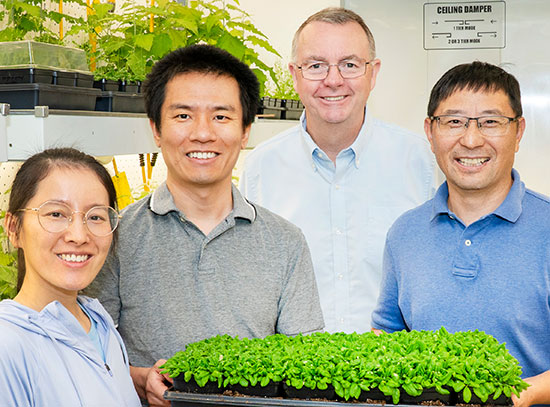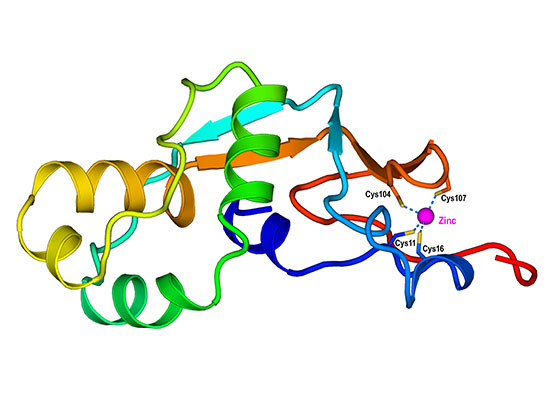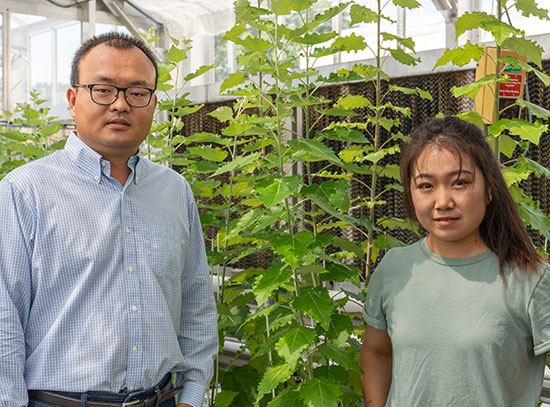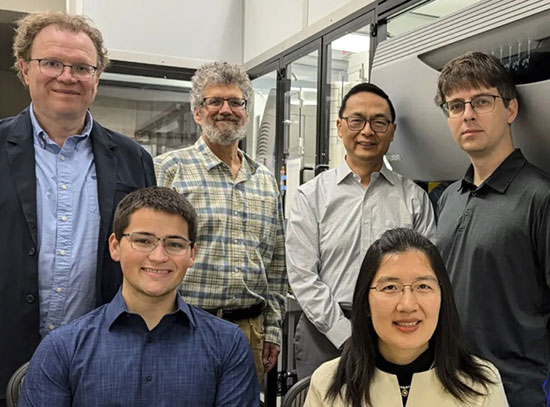
Plant Sciences
Brookhaven Lab's plant oil research
April 28, 2020
John Shanklin and Jantana Keereetaweep describe research on plant oils at the U.S. Department of Energy's Brookhaven National Laboratory
The Biology Department has a strong focus on the DOE mission towards developing the US bioeconomy to produce sustainable biofuels and bioproducts.
Our goal is to produce foundational science that supports this mission. Key to this work is our work to understand the principles underlying carbon capture, conversion, and storage in living systems. Towards this goal we are developing the capability to computationally model, predict and optimize these processes in plants (and microorganisms). Finding ways to increase the yield and diversity of desired products produced will contribute towards meeting the needs of an expanding population in a net-zero carbon manner. A second approach, based on genomic science, seeks to fill the knowledge gap that exists between plant genes and their function. The developing bioeconomy will require the cultivation of millions of acres of bioenergy/bioproduct crops. Stress from diseases (biotic stress) and adverse environmental conditions (abiotic stress) can cause yield losses of up to 50% or more. We are focusing on determining the initial interactions between pathogens and plants using unique BNL facilities at the NSLS-II's Laboratory for Biomolecular Structure (LBMS) i.e., cryo-electron microscopy, cryo-focused ion beam technology and NSLS-II beamlines at the molecular level.
Understanding the interactions and dynamics of protein complexes that mediate recognition and others that mediate plant responses to pathogens identifies targets for manipulation to change disease susceptibility and/or improve disease resistance. Understanding the links between specific genes and their functions can be used as a starting point for predictive modeling of plant biology. This goal requires learning the functions of approximately half of the genes shared by all plants. Right now, the functions of the proteins coded for by these genes are unknown or poorly understood. To fill in this essential knowledge quickly and efficiently, we are developing a high-throughput discovery pipeline—a unique capability for rapidly sampling and discovering the functions of these unknown genes exploiting a rapidly growing photosynthetic microorganism within the green plant lineage. These efforts will contribute to the Grand Challenge of "Enabling Predictive Biology."
Contact
-

John Shanklin
(631) 344-3414, shanklin@bnl.gov
Funding Agency
Research News

Scientists Harness Plants' Plasticity to Make Key Industrial Chemical

Biologists Identify Plant-specific Protein Essential for Survival

Scientists Use AI to Predict Protein Structure and Function

Biologists Engineer Larger, Tougher Crops for Fuel, Bioproducts

CABBI Team Deploys Robotic Lab to Revolutionize Plant Bioengineering
Bio Design
Mechanisms and Regulations of Carbon Allocation Storage in Plants
-

-

Jin Chai
(631) 344-7759, jchai@bnl.gov
-

-

-

-

-

-

-

Hai Shi
(631) 344-7717, haishi@bnl.gov
-

-

-







